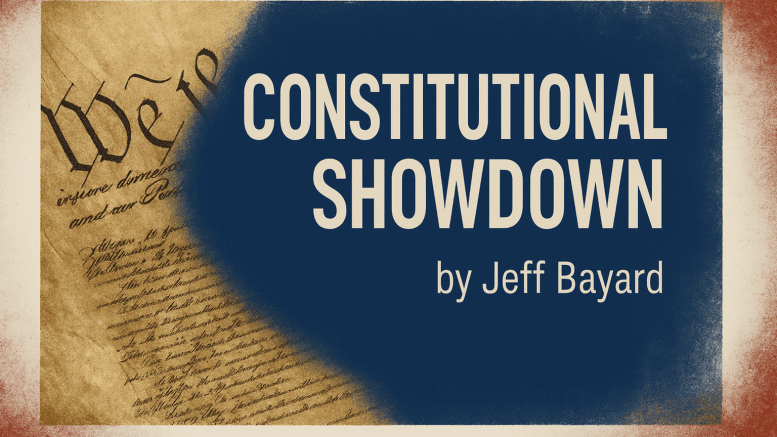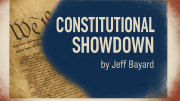“No King but Caesar?” The courts once again interfere with the rightful authority of a constitutional president.
Judicial Interference Strikes Again
As President Trump moves to enforce the law and secure our borders, the federal judiciary is striking back. In the last week alone, courts have inserted themselves into immigration enforcement in ways that undermine Article II authority and biblical principles of national sovereignty.
On May 19, 2025, the Supreme Court allowed the administration to terminate Temporary Protected Status (TPS) for 350,000 Venezuelans (https://apnews.com/article/venezuela-tps-supreme-court-trump-immigration-2025). This is an overdue victory for executive authority. But this win is surrounded by a flurry of lower court rulings that defy lawful deportation and impede the President’s constitutional duty to execute the laws.
Romans 13 makes it clear that civil rulers are “God’s servants for your good,” bearing the sword to punish wrongdoing. Yet when courts reverse deportations or shield immigration law violators, they are not protecting justice—they are obstructing it.
Alien Enemies and Judicial Overreach
In a move to expedite deportations of violent gang affiliates from Venezuela, the Trump administration invoked the Alien Enemies Act of 1798 . But federal judges have responded with skepticism and resistance. Courts have ruled that using this wartime statute in a modern immigration context requires more due process, despite its plain constitutional grounding and statutory language.
Just Security and the Heritage Foundation both flagged this case as a flashpoint in the broader battle over national security and executive discretion. Claremont Institute legal scholars warn that such rulings distort historical context and elevate proceduralism over public safety.
Deportation Reversed: Fourth Circuit Intervenes
In a stunning rebuke to Trump’s immigration enforcement, the Fourth Circuit Court of Appeals ordered the return of a deported Venezuelan man, Daniel Lozano-Camargo, who was expelled despite being protected under a 2009 settlement safeguarding asylum-seeking minors. The court cited “willful disregard” for the law and declared the deportation “unconstitutional.”
But this raises a question: if the executive branch cannot interpret and enforce legal settlements within immigration law, who can? Judicial micromanagement of deportation undermines both the separation of powers and operational clarity.
A State Judge Charged With Obstructing Enforcement
Meanwhile, the Trump Justice Department indicted Milwaukee County Circuit Judge Hannah Dugan for allegedly harboring an undocumented immigrant to shield them from ICE agents. The judge pleaded not guilty. Still, the case illustrates the dangerous terrain of judicial partisanship interfering with federal law.
The American Accountability Foundation and Article III Project have both flagged this case as emblematic of judicial activism gone rogue. The issue is not simply legality—it’s loyalty. Are public officials obeying the Constitution, or resisting it in the name of ideology?
Biblical Borders and Constitutional Clarity
From a biblical worldview, border enforcement is not optional—it’s foundational. Acts 17:26 reminds us that God “determined the boundaries of their dwelling place.” National borders are not merely political—they are providential. A president who enforces immigration law is fulfilling a biblical and constitutional duty.
Yet courts continue to obstruct this task. They overturn deportations, demand unnecessary procedural hurdles, and challenge wartime statutes that have long been upheld as lawful. This is not judicial review—it’s judicial usurpation.
VCA Resources Watching This Fight
Our team continues to track these developments using key sources:
- Judicial Watch – for FOIA litigation and enforcement accountability
- Just Security Tracker – for real-time judicial rulings
- Claremont Institute – for natural law context and agency restraint
- Center for Immigration Studies – for DHS-related litigation and data
Showdown Continues
The courts have declared another round in this constitutional brawl—but the outcome remains undecided. President Trump is wielding his lawful authority. The question is whether America’s judicial system will respect it, or continue playing god over the gates.
*Continue following our series: *VCA’s Constitutional Showdown


